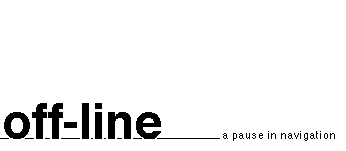That was so easy to “forecast”. The new
millennium started with little noise and hardly any news.
There were modest celebrations, no great events, no
prophecies of glory or doom. The prophets had run out of
options – and it’s quite risky to predict anything
that can be easily verified at short notice.
Remember the millennium bug? At midday on December 31,
1999 many worried people in this part of the world were
relieved when they heard from the other side of the planet,
where the time line had been crossed, that there was no
general breakdown, no catastrophe. But, on the other hand,
the problem is still unsolved and could re-surface thirty
years from now – though after all the big noise nobody is
talking about it.
At the end of year 2000 there was an attempt to renew the
scare. Press reports, allegedly inspired by the FBI,
said that thousands of time-set viruses would hit simultaneously
at midnight on December 31. Nothing happened.
The end of the year (or century, or millennium, or
whatever) was a time of reckoning for the so-called “new
economy”. Summing up showed a dramatic fall in stocks.
Some investors are holding equity that they paid a hundred
dollars and now is worth one – with very slim chances of
recovery. All of a sudden everyone discovered what has been
obvious from the beginning. There was no lottery in which
all are winners. Even the basic venture capital approach
(invest in ten, nine will fail but one will pay for
the rest) didn’t work out. Now everyone is blaming
everyone else for not understanding what every careful and
uncommited ovserver had known for over a year.
It would be nice if the bubble had really exploded
and the days of mindless gambling were really over. There
would be money, time and resources for some real business.
Unfortunately we are not there – or not yet.
On this side of the ocean – specifically in my
country – the grapevine is full of murmurs about large
“portals” going out of business. In a few cases,
it’s true, But most of the large online businesses are
not closing. But they are cutting costs, reducing investments,
dismissing staff – as noiselessly as they can.
Why? The answer is extremely simple. They expected much larger
and faster returns than were possible. Their business plans were
based on thin ice – or on the “miracle” promises
of expensive self-appoited wizards. Now they are trying to tidy up
the mess, but they still have no clue on how to base their strategies
on more solid ground. They are trying,(rather clumsily) to make it look like
“ business as usual”. CEOs are not resigning,
management is not being replaced. There are no clear indications, so far,
that anyone in those companies has learnt a lesson or discovered how
to build a business on sounder foundations. Or has simply realized that
there has never been an “internet time” and the clock
of development is set by human behavior, not by the (often false
or useless) “innovations” of technology.
But there was some news at the end of the year, that
escaped general attention. The worldwide internet hostcount was,
for the first tome, over 100 million. That’s not just a
“statistical curiosity”. An analysis of the
growth pattern leads to some interesting evaluations of how
the internet is expanding. (See the data
section of this site.)
In the case of Italy, thi picture is quite different from what
it used to be. Over a million inernet hosts is not just a “round figure”.
It’s a dramatic change. Italy is now one of the top ten
countries worldwide in internet activity. It was in no such
position one or two years earlier. The basic (and unanswered)
question is: now that we have quantity, what are we going to
do about quality? That’s the challenge for the
new year – and for several years to come.



